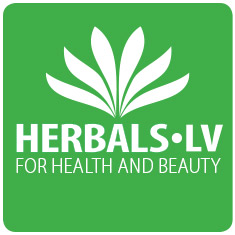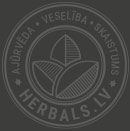- Ayurvedic tea
- Indian teas
- Supplements
- Oils and drinks for health
- Facial Care
- For Skin
- Dental care
- For personal hygiene
- Sport and Yoga
- For Hair Health
- For massage
- Healthcare
- For Women
- Supplements for Men
- Aromatherapy Essential Oil
- Incense sticks
- Indian Food
- Vegan
- Superfoods
- For meditation
- For home
- New Products
- Specials
- Ayurvedic Herbs
- Wholesale
- Gifts and Kits
Brown Mustard Seeds
Mustards are native to Asia Minor, but these days cultivated as one of the main commercial crop in Canada, India, China, and temperate climates of European region.
Mustards are winter crops. The plant reaches about 4-5 feet in height and bears golden yellow colored flowers. Its tiny, round seeds measuring about one mm in diameter is encased inside a fruit pod in a similar fashion like green pea pod.
In general, three main varieties of mustard are grown worldwide for use.
White mustard seeds (Brassica alba): The seeds are light straw yellow colored and are slightly larger than the other two varieties. White seeds exhibit mild pungency.
Black mustards (Brassica nigra): The seeds are commonly seen in South Asia. The seeds are sharp and more pungent than other two varieties.
Brown mustards (Brassica juncea): The seeds are native to sub-Himalayan plains of Northern India.
Health benefits of mustard seeds
Generally perceived as health benefiting spice, mustard seeds are indeed very rich in phyto-nutrients, minerals, vitamins and anti-oxidants.
Being one of the chief oil seeds, mustards are indeed very high in calories; 100 g of seeds provide 508 calories. Nonetheless, the seeds are made of quality proteins, essential oils, vitamins, minerals, and dietary fiber.
The seeds are high in essential oils as well as plant sterols. Some of important sterols include such as brassicasterol, campesterol, sitosterol, avenasterol and stigmasterol. Some of glucosinolate and fatty acids in the seeds include sinigrin, myrosin, erucic, eicosenoic, oleic, and palmitic acids.
Mustard seeds are an excellent source of essential B-complex vitamins such as folates, niacin, thiamin, riboflavin, pyridoxine (vitaminB-6), pantothenic acid. These vitamins are essential in the sense that body requires them from external sources to replenish. These B-complex groups of vitamins help in enzyme synthesis, nervous system function and regulating body metabolism.
100 g of mustards provide 4.733 mg of niacin (vitamin B-3). Niacin is a part of nicotinamide co-enzymes, helps lower blood cholesterol and triglyceride levels.
Mustard seeds contain flavonoid and carotenoid antioxidants such as carotenes, zea-xanthin, and lutein. In addition, the seeds compose a small amount of vitamin anti-oxidants such as vitamin A, C, and vitamin K.
The seeds are an excellent source of vitamin E, gamma tocopherol; contain about 19.82 mg per 100 g (about 132% of RDA). Vitamin E is a powerful lipid soluble antioxidant, required for maintaining the integrity of cell membrane of mucus membranes and skin by protecting it from harmful oxygen-free radicals.
Mustards are rich source of health benefiting minerals. Calcium, manganese, copper, iron, selenium and zinc are some of the minerals especially concentrated in these seeds. Calcium helps build bone and teeth. Manganese is used by the body as a co-factor for the antioxidant enzyme superoxide dismutase. Copper is required in the production of red blood cells. Iron is required for the red blood cell formation and cellular metabolism.
Manufacturer: TRS, India
Net weight: 100 g
Also bought
 PANCH PUREN
Spice mix for digestion: fenugreek seeds (fenugreek), Kalonji (black cumin), fennel, cumin, mustard.
PANCH PUREN
Spice mix for digestion: fenugreek seeds (fenugreek), Kalonji (black cumin), fennel, cumin, mustard.
Top sellers
 CHIA seeds AKCIJA -30%
Chia seeds - a natural source of Omega 3
CHIA seeds AKCIJA -30%
Chia seeds - a natural source of Omega 3
 HIMALAYAN SALT Fine -40%
Himalayan pink salt (fine)
HIMALAYAN SALT Fine -40%
Himalayan pink salt (fine)
 CHIA seeds 1kg AKCIJA -30%
Chia seeds - a natural source of Omega 3
CHIA seeds 1kg AKCIJA -30%
Chia seeds - a natural source of Omega 3








